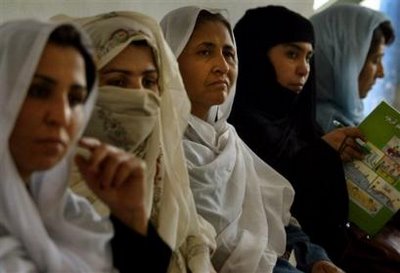
Call for Papers: Muslim Women and the Challenge of Authority
A conference to be held at Boston University, March 31, 2012Â
“The gender jihad is a struggle to establish gender justice in Muslim thought and praxis. At the simplest level, gender justice is gender mainstreaming – the inclusion of women in all aspects of Muslim practice, performance, policy construction, and in both political and religious leadership†Amina Wadud, Inside the Gender Jihad
Scholarship on female religious authority in Islam dates back at least to the 1970s and has gone through several important phases. For two decades, most scholarship focused on demonstrating Muslim women’s poor social status and sought to locate the source of women’s oppression within religious doctrine. By the 1990s scholarship had turned to locate an egalitarian impulse within Islam that had been thwarted by the pressures of its patriarchal contexts. Over the next decade, female authored studies of the Qur’an claimed an unimpeachable basis for female rights by holding up the Qur’anic ideal of equality as a standard by which to judge social realities. More recently, scholars have sought to complicate the view of Muslim women’s unrelenting oppression. They have worked instead to recover evidence of past and present female resistance and agency, demonstrating that Muslim women are carving out spheres of interpretive autonomy and successfully negotiating their public and private lives within the constraints of broader social structures.  This conference builds on the foundation of the foregoing work and aims to bring together considerations of religious, social, and interpretive authority across geographical and temporal boundaries.  Amina Wadud will be the keynote speaker for the conference, joined by Mohja Kahf who will give the opening lecture.  We invite the submission of papers addressing both Muslim women’s authority and others’ authority over Muslim women in political, intellectual, ritual, and sexual contexts in the contemporary world as well as in the past.Â
Core questions for the conference include:
• What authority do Muslim women have to interpret religious texts?Â
• What authority do traditional interpretations of scripture and law have over Muslim women?Â
• What ritual, social, public, and political authority do women exercise?Â
• How do mass education and new media affect women’s activities?Â
• Who has the authority to speak on behalf of or about Muslim women?Â
To apply, please send the following to
* paper titleÂ
* proposal of no more than 500 wordsÂ
* brief biographical sketchÂ
Organized by Kecia Ali (Boston University), Laury Silvers (University of Toronto), and Juliane Hammer (George Mason University) and supported by the Boston University Humanities Foundation; the Ali Vural Ak Center for Global Islamic Studies at George Mason University; CURA (BU), the Institute for the Study of Muslim Societies and Civilizations (BU), the New England/Maritimes Regional American Academy of Religion (NEMAAR), the Institute for Philosophy and Religion (BU), the Department of Religion (BU), and the Program in Women’s, Gender, and Sexuality Studies (BU).Â
 Â